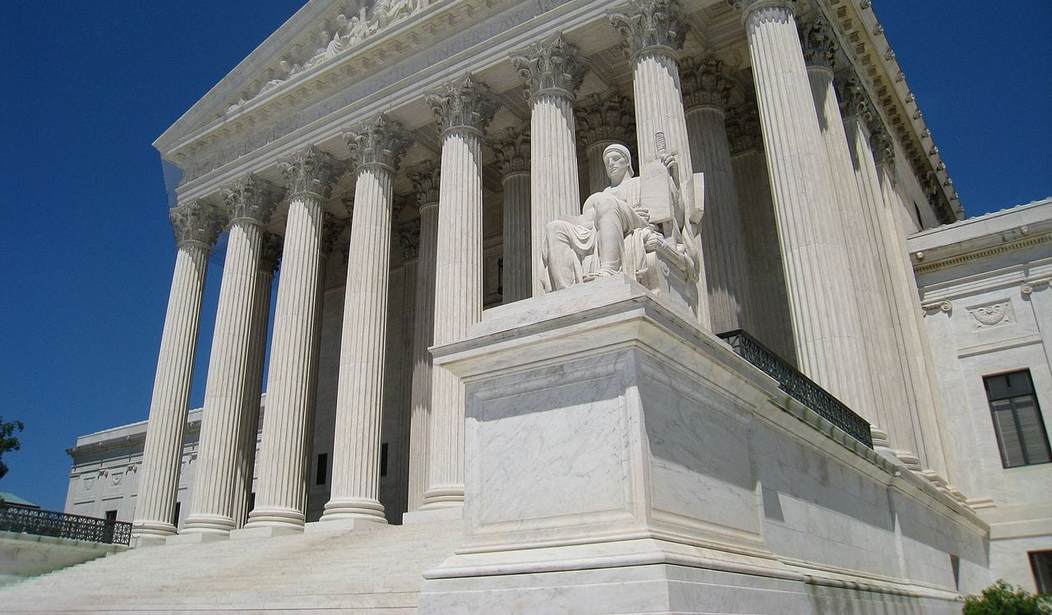On Tuesday, the Supreme Court upheld the rights of a natural gas company to seize New Jersey state-owned land for the construction of a natural gas pipeline. Under the Natural Gas Act (NGA), properly permitted companies like PennEast Pipeline Company can condemn public lands under the federal government’s public domain au, the Court ruled.
“Eminent domain is the power of the government to take property for public use without the consent of the owner. It can be exercised either by public officials or by private parties to whom the power has been delegated,” Chief Justice John Roberts wrote in the majority opinion for PennEast Pipeline Company v. New Jersey (2021). “Specifically, we are asked to decide whether the Federal Government can constitutionally confer on pipeline companies the authority to condemn necessary rights-of-way in which a State has an interest. We hold that it can.”
A non-ideological coalition of justices joined Roberts in the 5-4 majority opinion: Bill Clinton-appointed Stephen Breyer, George W. Bush-appointed Samuel Alito, Barack Obama-appointed Sonia Sotomayor, and Donald Trump-appointed Brett Kavanaugh. Justice Neil Gorsuch wrote a dissenting opinion, which Justice Clarence Thomas joined, and Justice Amy Coney Barrett wrote another dissenting opinion, which Justices Thomas, Gorsuch, and Elena Kagan joined.
“Although nonconsenting States are generally immune from suit, they surrendered their immunity from the exercise of the federal eminent domain power when they ratified the Constitution,” Roberts ruled. “That power carries with it the ability to condemn property in court. Because the Natural Gas Act delegates the federal eminent domain power to private parties, those parties can initiate condemnation proceedings, including against state-owned property.”
While Roberts ruled that New Jersey surrendered its immunity in ratifying the Constitution, Barrett claimed that “this argument as no textual, structural, or historical support.”
“This Court has long held that States did not surrender their sovereign immunity to suits authorized pursuant to Congress’ power to regulate interstate commerce, and no historical evidence suggests a different result obtains for condemnation suits brought by private parties against nonconsenting States,” Barrett argued. “Because the state sovereign immunity bars these suits, I respectfully dissent.”
Recommended: GOP AGs Sue to Block Biden’s Stealth Effort to Enshrine Climate Alarmism Into Federal Rulemaking
While conservatives generally favor the expansion of natural gas pipelines, as they make the transportation of cheap energy sources both more efficient and safer, they also look askance at expansions of eminent domain. Similarly, while liberals generally oppose natural gas pipelines out of exaggerated climate change fears, they tend to approve of asserting centralized federal power over the states.
This case presented a fascinating mix of issues that split the conservatives and liberals on the Court.









Join the conversation as a VIP Member